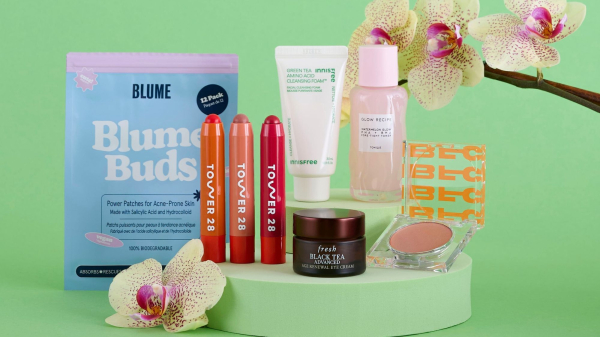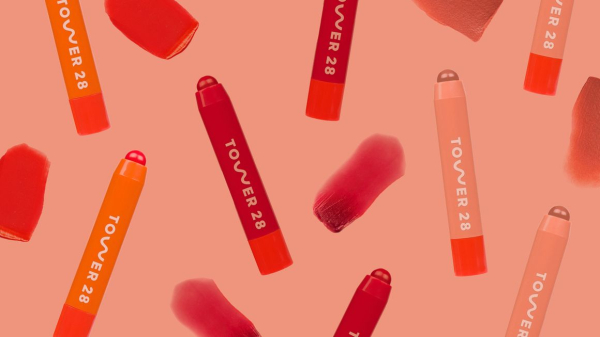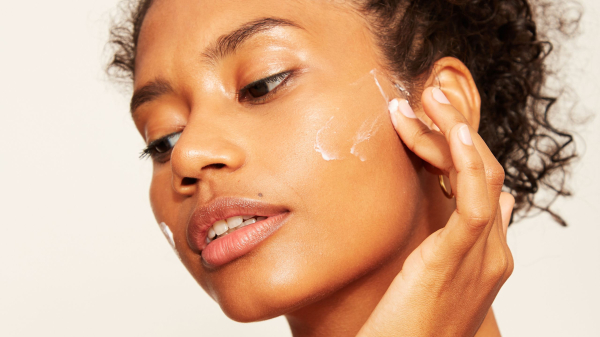 Adobe StockSave this storySave this story
Adobe StockSave this storySave this story
All products featured on Allure are independently selected by our editors. However, we may receive compensation from retailers and/or from purchases of products through these links.
If you’re dealing with melasma or other stubborn hyperpigmentation, then the best hydroquinone creams are in your future. This skin-lightening agent works to even out skin tone in a few ways: Like vitamin C and kojic acid, it works by inhibiting tyrosinase. "Tyrosinase is an enzyme that is critical in creating the pigment, or melanin, in our skin," says Heather Woolery-Lloyd, MD, a board-certified dermatologist in Miami. But unlike other active ingredients, hydroquinone halts tyrosinase on two fronts—making it a powerful tool for treating melasma and, in the past, a staple in dark spot correctors.
Our Top Picks
- Best Overall: Musely The Spot Cream, $103
- Best for Post-Inflammatory Hyperpigmentation: Wisp Brighten Up!, $90
- Best for Age Spots: Nurx Dark Spots Formula, $30 per month
- Best Personalized: Agency by Curology Dark Spot Formula, $35 per month
But these days, you might need a derm to get it. Hydroquinone has been in skin-care products since the early 1980s due to its proven ability to dramatically improve the appearance of discoloration—even some of the most stubborn forms of hyperpigmentation, like melasma—with better results than nearly every other ingredient available over-the-counter. But therein lies the rub. While hydroquinone was once an OTC option, the FDA has reined in the controversial benzene derivative, making it prescription-only in the United States as of September 2020.
While we can’t stand gatekeeping, we get it: A powerful topical drug with potential side effects should come with the guidance of a medical professional. But while you can’t just put hydroquinone in your real or virtual Ulta cart, you don’t have to visit a dermatologist’s office to get hydroquinone, either. Thanks to increasingly popular digital health services, you can shop for hydroquinone from your phone or laptop just by answering a few questions—and asking them to a dermatologist, nurse practitioner, or physician assistant whenever you may have them. Often, the formulas are even customized. Here’s what you can expect from the most popular providers.
Frequently Asked Questions
Best Overall: Musely The Spot Cream
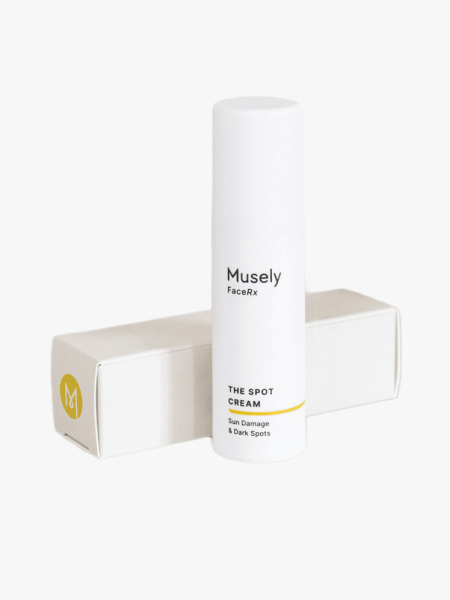
Musely
The Spot Cream
Musely
Why we love it: Musely offers four formulations of The Spot Cream, all of which address acne scars, melasma, and discoloration from sun damage. Although one, aptly named “HQ-free,” doesn’t contain hydroquinone—it’s a prescription blend of azelaic acid, tranexamic acid, and niacinamide—two of the other three, Erase and M+, are blends with a whopping 12% hydroquinone.
That’s a lot. “In practice, [hydroquinone] compounded up to 8% is considered to be high and is only recommended for short periods of time,” says Lesley Clark-Loeser, MD, a board-certified dermatologist in Davie, Florida. That said, it makes sense that both Erase, which is blended with niacinamide and hydrocortisone (a steroid), and M+, which adds tretinoin to that mix, are intended to be used only for an initial two-month period.
After that—or to begin with if you’re worried about using such a high percentage—you can use the Nurture formula, which contains 6% hydroquinone alongside vitamin C and niacinamide. As you go through the questionnaire process, you’ll be asked which formula you prefer or to “let my doctor decide what’s best." Musely also offers hydroquinone formulas intended for the genitals, anus, inner thighs, and underarms called The Private Cream, which is available at strengths ranging from 3% to 12%.
More to know
LargeChevron
- Concentration: 6% or 12%
- Additional ingredients: hydrocortisone, tretinoin, vitamin C, vitamin C
Best for Post-Inflammatory Hyperpigmentation: Wisp Brighten Up!
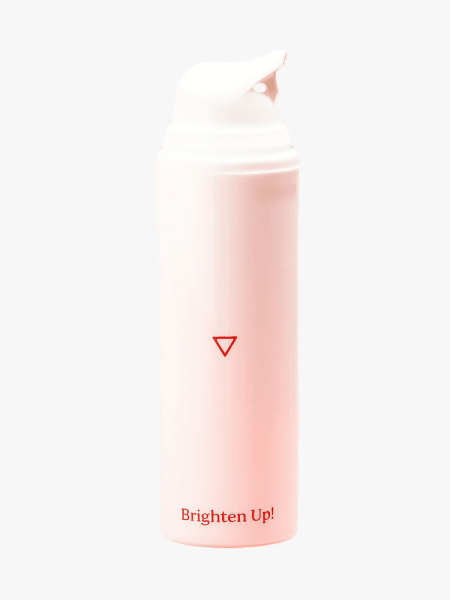
Wisp
Brighten Up!
Wisp
Why we love it: There are no hoops to jump through with Wisp. Whereas other online providers have you answer multiple questions before you can put hydroquinone products in your cart, you can simply add Brighten Up! to your cart lickety-split, filling out a small handful of “patient information” multiple choice questions in the same checkout sections as your shipping address and credit card number.
The cream itself is one-size-fits-all: a 5% hydroquinone formula that also features vitamin C and niacinamide; vitamin C inhibits tyrosinase while niacinamide keeps new pigment from melanocytes (pigment-producing cells) from reaching the surface of your skin. Wisp says it “pairs well” with its Clear Up! acne cream, which features clindamycin and tretinoin, or its Firm Up! wrinkle cream, another prescription tretinoin formula that also includes azelaic acid and niacinamide.
More to know
LargeChevron
- Concentration: 5%
- Additional ingredients: vitamin C, niacinamide
Best for Age Spots: Nurx Dark Spots Formula
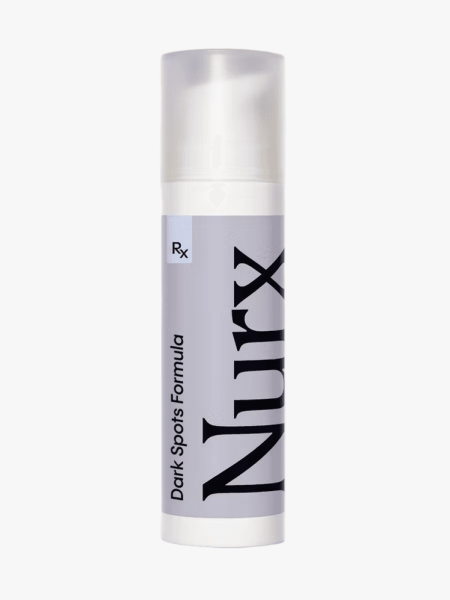
Nurx
Dark Spots Formula
Nurx (Per Month)
Why we love it: Like Wisp, Nurx’s Dark Spots Formula doesn’t have different levels available. If approved, you’ll receive a blend of brightening ingredients that includes azelaic acid, kojic acid, tretinoin, hydrocortisone, and, of course, hydroquinone—this one at 4% strength.
Google “Nurx hydroquinone,” however, and you may find yourself looking at a totally no-frills hydroquinone-only option. The clinical-looking tube—a departure from other, more stylized packaging that telemedicine providers have been leaning toward—indicates that it’s a 4% concentration of “skin bleaching cream.” Ultimately, which one you get will depend on your online consultation and the judgment of a provider.
More to know
LargeChevron
- Concentration: 4%
- Additional ingredients: azelaic acid, kojic acid, hydrocortisone, tretinoin
Best Personalized: Agency by Curology Dark Spot Formula
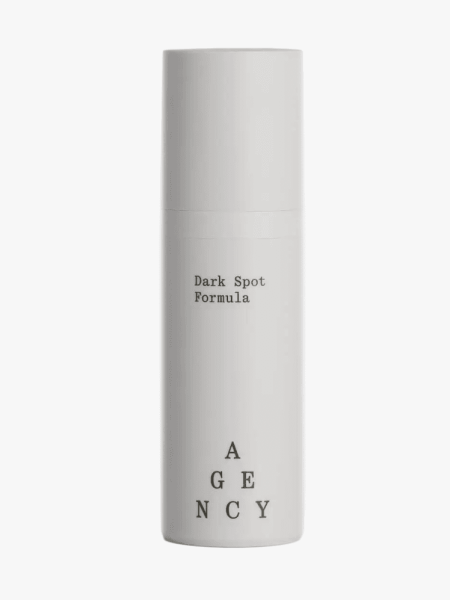
Agency by Curology
Dark Spot Formula
Agency (Per Month)
Why we love it: When you start the process of requesting Agency by Curology’s Dark Spot Formula, you go into it not knowing if you’ll even get hydroquinone. Promising more even-toned skin, the personalized cream “may” include hydroquinone; the ingredients—and the strength of the hydroquinone, if any—are subject to consultation. It may also include kojic acid, azelaic acid, and antioxidant protection in the form of resveratrol and green tea extract to supplement the effects of hydroquinone.
The consultation comes in the form of a skin quiz that asks about your concerns, your skin type, how prone you are to irritation, and general health and medication history. Interestingly, when we went through the process and indicated that our main concern is dark spots, that we’re as healthy as a horse, but that we’ve never used hydroquinone before, it actually recommended an entirely different product called Future Formula RX, which contains tretinoin (a prescription-level version of retinol), azelaic acid, tranexamic acid, niacinamide, and dexpanthenol—but no hydroquinone. (This blend can help you target other signs of aging, like fine lines.)
More to know
LargeChevron
- Concentration: varies depending on prescriber assessment
- Additional ingredients: azelaic acid, kojic acid, resveratrol, green tea extract
Frequently Asked Questions
What are the side effects of hydroquinone?
For one, hydroquinone could cause dryness and irritation in sensitive skin; if you have a skin condition like eczema or acne, check with your dermatologist before trying hydroquinone.
But “the primary concern is the risk of ochronosis, a rare but challenging condition where long-term overuse paradoxically causes darkening of the skin,” says Francesa Lewis, MD, a board-certified dermatologist in Delray Beach, Florida. In other words, you could end up with darker skin, which is the exact opposite of what you were trying to achieve when you set out to lighten discoloration. However, in the off chance that this does happen, it typically takes many months to years of use, she says.
Dr. Lewis adds that there have also been concerns about teratogenicity (fetal abnormalities and birth defects), but these concerns are based on animal studies with high-dose oral hydroquinone. “[There is a] lack of long-term human safety studies,” says Dr. Clark-Loeser, and these issues have not been demonstrated in humans using topical formulations. “More research is needed to understand the long-term effects on humans, importantly assessing any carcinogenic potential.”
If you do choose to use a topical hydroquinone treatment, Dr. Clark-Loeser advises staying alert to any irritation, allergic contact dermatitis, or facial swelling you may experience.
Can you still get hydroquinone over-the-counter?
Since September 2020, the FDA has banned hydroquinone from being sold over the counter. “In the U.S., concentrations of 4% or higher are available as a prescription or compounded to treat stubborn pigment conditions like melasma,” says Dr. Lewis.
According to the American Society for Dermatologic Surgery, the FDA proposed an OTC ban way back in 2006, recommending more studies by the National Toxicology Program (NTP) due to as-yet-unproven concerns that it may cause cancer, as well as concerns over ochronosis—skin darkening (in other words, the opposite of what most hydroquinone users are going for). It wasn’t until the Coronavirus Aid, Relief, and Economic Security (CARES) Act, with which the FDA significantly reformed OTC drug regulation, that we saw hydroquinone yanked from shelves and made available only with a prescription.
What should you not combine with hydroquinone?
If an active ingredient already carries a risk of irritation on its own—looking at you, exfoliating acids—using it alongside hydroquinone in your skin-care routine could be asking for trouble. “Caution is needed when combining hydroquinone with other active ingredients like retinoids or glycolic acid, as the combination can cause irritation or increased sensitivity,” says Dr. Lewis.
What else should you avoid while using hydroquinone? Dr. Clark-Loeser adamantly emphasizes, “Sun exposure!” Additionally, she says you shouldn’t use hydroquinone while taking or applying any medications that may increase your sensitivity to the sun. (And, of course, sunscreen is non-negotiable.)
Are there any effective alternatives to hydroquinone?
Good news: There are treatment options besides hydroquinone that may be worth a shot. Topical tranexamic acid, arbutin, kojic acid, and azelaic acid can all be helpful when addressing hyperpigmentation, either instead of hydroquinone or in tandem with it. Incidentally, SkinCeuticals Discoloration Defense contains all of these besides arbutin.
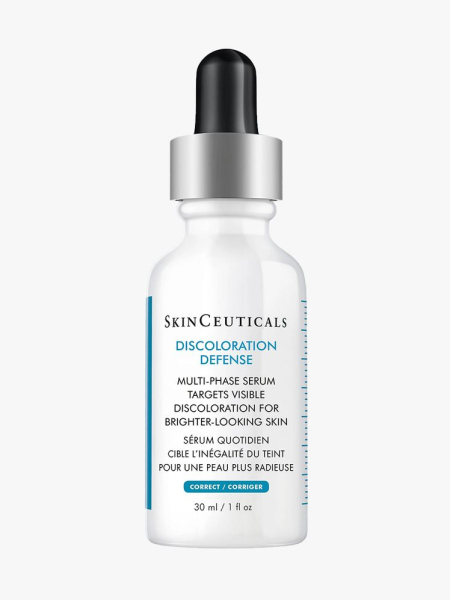
SkinCeuticals
SkinCeuticals Discoloration Defense
Bluemercury
Dermstore
SkinCeuticals
“In practice, we often use a compounded 6% to 8% hydroquinone regimen for two to four months alongside these other agents, then taper or discontinue hydroquinone while continuing the safer long-term options,” says Dr. Lewis, who adds that in-office treatments like the Perfect Derma Peel, Enlighten Peel, and lasers like Clear + Brilliant can also be great adjuncts.
Meet the experts
- Heather Woolery-Lloyd, MD, a board-certified dermatologist in Miami
- Lesley Clark-Loeser, MD, a board-certified dermatologist in Davie, Florida
- Francesa Lewis, MD, a board-certified dermatologist in Delray Beach, Florida
How we test and review products
When Allure tests a product, our editors look at it from every angle to best serve you. We review ingredients, scrutinize brand claims, and, when necessary, examine peer-reviewed scientific and medical studies. In addition to testing each and every product that's included in every review, we rely on experts who shape their fields, including dermatology, cosmetic chemistry, and medicine, to help us vet the ingredients and formulas.
For our list of the best hydroquinone creams, we considered each product's performance across five primary categories: product ingredients and efficacy, packaging, fragrance, texture, and product wear. Every product was determined to have excelled in each category by our editorial team, which is composed of in-house writers and editors as well as contributors—along with special consideration from dermatologists. To learn more information on our reporting and testing processes, read our complete reviews process and methodology page.
Our staff and testers
A beauty product is a personal purchase. You might be searching for a face cream to address persistent dryness or a new nail product to add to your Sunday self-care routine; you may simply be browsing around for the latest launches to hit the hair market. No matter what you seek or your individual needs and concerns, Allure wants to ensure that you love anything we recommend in our stories. We believe that having a diverse team of writers and editors—in addition to the wide range of outside testers and industry experts we regularly call upon—is essential to reaching that goal.
After all, can we really say a skin care product is the "best" for people over 50 if the only testers we've solicited opinions from folks who have yet to hit 30? Can we honestly deem a high-end diffuser worthy of your hard-earned cash if it's never been tested on curls? We're proud that our staff spans a wide range of ages, skin tones, hair textures, genders, and backgrounds, which means that we are able to fairly assess any beauty product that comes into the beauty closet.

